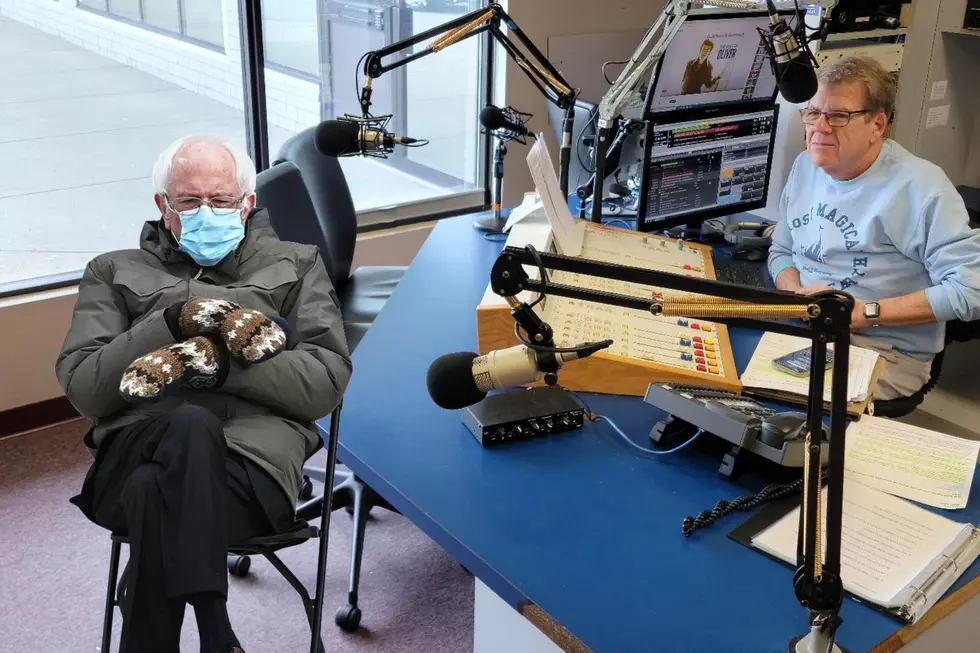
That Time Vermont U.S. Sen. Bernie Sanders Owed Me Money
Rifling through an old shoe box on the top shelf of my clothes closet while searching for any classified documents I might have stashed away and forgotten about, I came across some old letters from when I worked, albeit briefly, for U.S. Senator Bernie Sanders of Vermont.
When I relocated to Vermont in 1987, Bernie Sanders was the Mayor of Burlington, the Green Mountain State's largest city, though not the capital.
Burlington was a pretty funky town at the time, with great restaurants, clubs, and a lot of arts and culture. Sanders was a cult figure – and with good reason. He was a visionary and breathed new life into the aging Queen City.
As News Director for a local Burlington radio station, I got to cover many of Bernie's press conferences. Some were to discuss local matters, while others dealt almost entirely with U.S. foreign policy.
It's where Bernie perfected his "richest 1%" rhetoric.
Few were surprised when in 1988, Bernie Sanders declared his candidacy for Congress. An Independent, Sanders (37.5 percent) finished second to Republican Peter Smith (41.2 percent). Democrat Paul Poirier, Libertarian Jim Hedbor, Liberty Union Party candidate Peter Diamondstone, and Independent Morris Earle split the rest of the vote.
Two years later, Sanders challenged Smith and won, with 56 percent of the vote to Smith's 36.5 percent. Democrat Delores Sandoval and Liberty Union Party candidate Peter Diamondstone collected less than four percent of the vote between them.
And so it was that Mr. Sanders went to Washington.

In 2006, Sanders won an open seat in the U.S. Senate and unsuccessfully sought the Democratic presidential nomination in 2016 and 2020.
During the summer of 1988, I was invited to clean out my desk at the radio station. I guess my bad attitude finally got to them. When I returned home that evening, there was a message on my door to contact Mayor Sanders "ASAP."
Sanders was deep in his first campaign for Congress, and his press secretary up and left. Since I was without a gig of my own, I accepted the offer to handle the press for the remainder of the campaign.
Bernie was as tough, driven, motivated, and focused as anyone I have ever met, but he was fair. I imagine that hasn't changed.
Handling press for Bernie meant just that – handling the press – making sure they got the latest statements from Bernie on everything. There were no email or file transfers then, so it also meant crisscrossing the state with reel tapes containing Bernie's last campaign ads for radio stations to air.
It also gave me a chance to learn about and conduct polling.
Bernie and I are on opposite sides of the political spectrum, but I admit the job was challenging, and I learned a lot.
When the campaign ended, not unlike most campaigns, it took a while for campaign workers to get paid.
I took the job to pay the rent and buy food, but when the paychecks weren't coming in and the landlord was leaning on me, I had to lean on Bernie's people to settle up. They did, and all ended well.
I never hung out with Bernie, but I did visit his home for campaign meetings. We were never "buds," and I'm not sure he'd remember me today, but I am grateful for the experience.
25 richest people in America and how they did it
LOOK: 23 astronomical events to look out for in 2023
More From WBSM-AM/AM 1420


![Colin Gordon on Bernie Sanders and the Department of Labor [OPINION]](http://townsquare.media/site/518/files/2020/08/GettyImages-1208705094.jpg?w=980&q=75)
![A Vote for Biden Is a Vote for Socialism [OPINION]](http://townsquare.media/site/518/files/2020/10/GettyImages-1277616709.jpg?w=980&q=75)
![Hunter Biden Report Is Devastating to Democrats [OPINION]](http://townsquare.media/site/518/files/2020/09/GettyImages-1267429364.jpg?w=980&q=75)
![The Democrats Should Have Stuck With Bernie [OPINION]](http://townsquare.media/site/518/files/2020/08/GettyImages-1208705094.jpg?w=980&q=75)
![The Radicals Are Coming for Jesus Christ Next [OPINION]](http://townsquare.media/site/518/files/2020/06/GettyImages-460586436.jpg?w=980&q=75)
![Swing State Voter Fraud Robs Americans of Civil Rights [OPINION]](http://townsquare.media/site/518/files/2020/05/GettyImages-1056966312.jpg?w=980&q=75)
![Would Joe Biden Pick Stacey Abrams for the SCOTUS? [OPINION]](http://townsquare.media/site/518/files/2020/05/GettyImages-1188998309.jpg?w=980&q=75)
